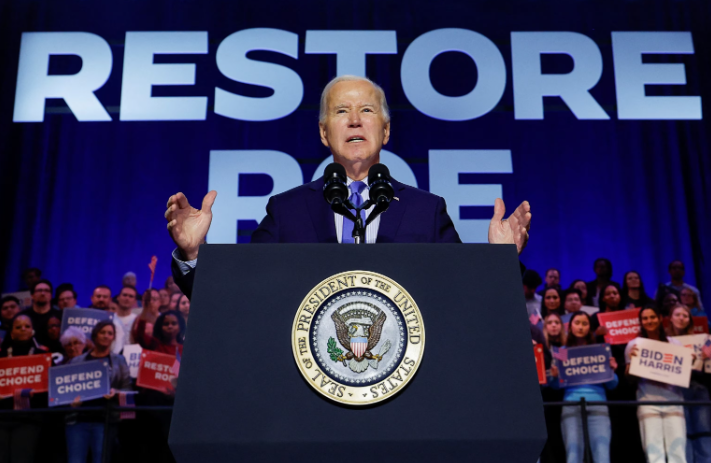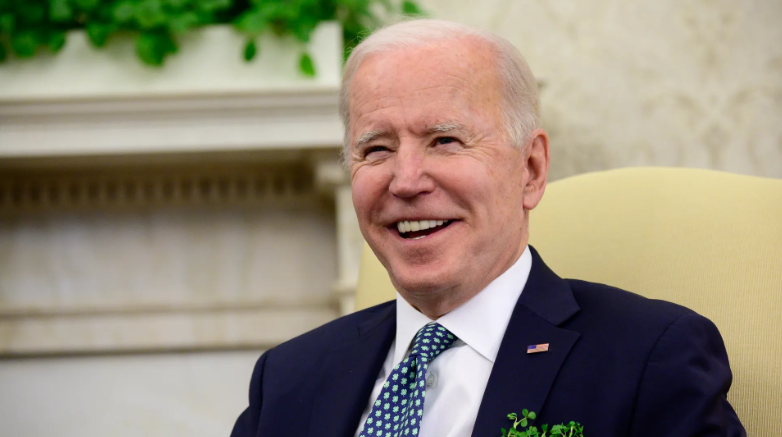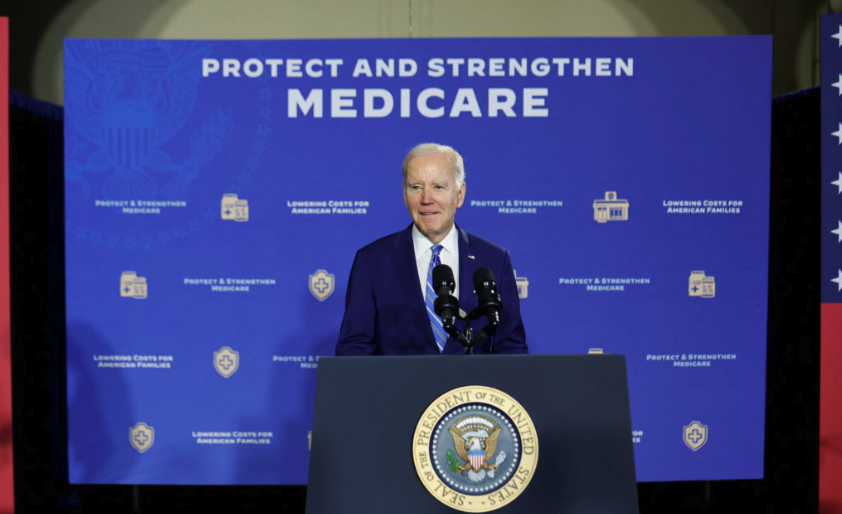Credit: Axios
In a candid moment of reflection, President Joe Biden recently voiced his regret for using the term “illegal” to describe an undocumented immigrant during his State of the Union address. This statement came amid the poignant story of a tragic event that involved a Venezuelan man charged with the killing of a Georgia nursing student. The President’s choice of words sparked a conversation on the delicate balance of language, empathy, and policy in addressing immigration issues in the United States.
During an interview with MSNBC host Jonathan Capehart, President Biden expressed his regret, stating, “I shouldn’t have used ‘illegal,’ it’s ‘undocumented.'” This admission highlights a broader, ongoing debate about the terminology used to discuss immigration and the people it affects. Language, especially in the realm of policy and public discourse, carries profound implications, shaping perceptions, attitudes, and ultimately, actions.
The President’s initial remark came in response to an interruption by Rep. Marjorie Taylor Greene (R-Ga.), who invoked the name of Laken Riley, the young medical student whose life was tragically cut short. In the heat of the moment, President Biden, while aiming to express sympathy and acknowledge the gravity of the loss, misspoke, not only in the term he used but also in pronouncing Riley’s name.
The reaction to President Biden’s use of “illegal” was swift and pointed, reflecting a broader shift in how society understands and discusses immigration. Both Democrats and immigration advocates have long argued against the dehumanizing connotations of the term “illegal,” advocating for “undocumented” as a more accurate and humane descriptor. This linguistic shift is not merely semantic but part of a larger effort to humanize policy discussions and recognize the dignity of individuals, irrespective of their immigration status.
The pushback against Biden’s choice of words is emblematic of the complex dynamics at play in America’s immigration debate. It underscores the tension between enforcing laws and recognizing the humanity of those who find themselves tangled within the web of immigration policy. This tension is not new, but it is increasingly at the forefront of national discourse, particularly as the country approaches another election cycle.
President Biden’s administration has faced criticism from various angles on its approach to immigration. On one side, there’s pressure to maintain order and security at the borders. On the other, there’s a call for compassion and a humane approach to immigration reform—a promise that many feel remains unfulfilled from Biden’s 2020 campaign. This balancing act is challenging, reflecting the broader struggle to reconcile the ideals of a nation built by immigrants with the realities of contemporary global migration.
In his interview, President Biden attempted to draw a stark contrast between his administration’s approach to immigration and that of his predecessor, Donald Trump. Biden condemned the dehumanizing rhetoric often used to describe immigrants, emphasizing his commitment to treating all individuals with respect, irrespective of their immigration status. This stance, while noble in its ideals, is continuously tested by the complexities of governing a deeply divided country.
The incident and its aftermath serve as a poignant reminder of the power of words. Language not only reflects our thoughts and policies but also shapes them. In discussing immigration, the choice of words can either bridge divides or deepen them, humanize individuals or reduce them to mere legal categories. As the United States grapples with the challenges and opportunities presented by immigration, the discourse surrounding it remains a critical battleground for defining the country’s values and identity.
Ultimately, President Biden’s regret and the subsequent discussion invite a broader contemplation of how America discusses and handles immigration. It’s a reminder that behind the statistics, laws, and policy debates are real human lives—each with its own story, dreams, and dignity. As the nation moves forward, the hope is that empathy, understanding, and respect will guide the conversation, ensuring that policy decisions are informed by both the head and the heart.











